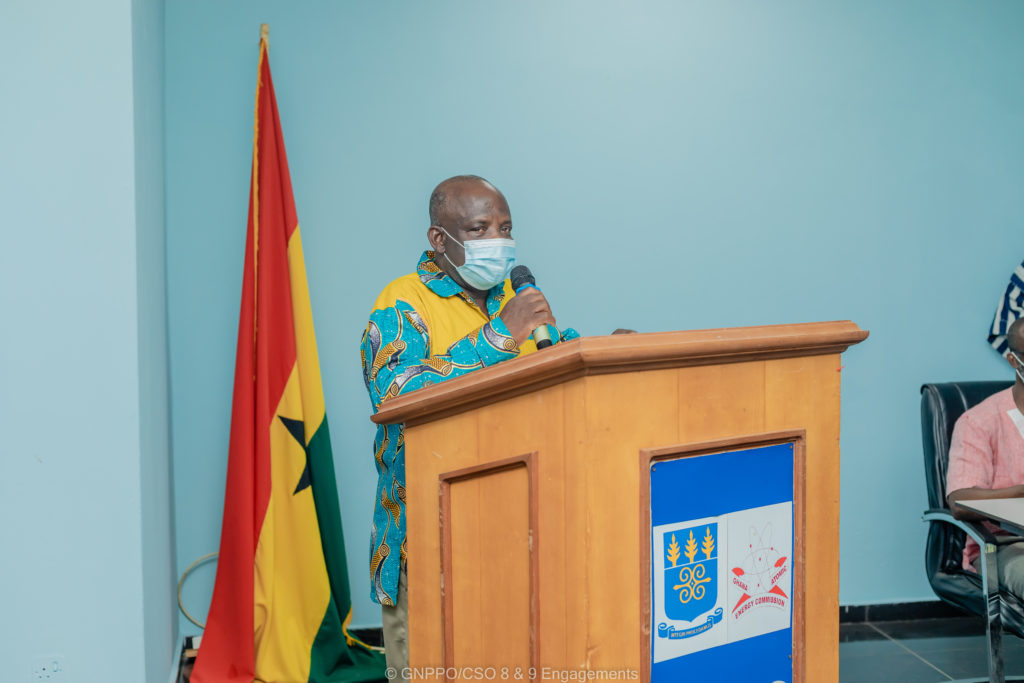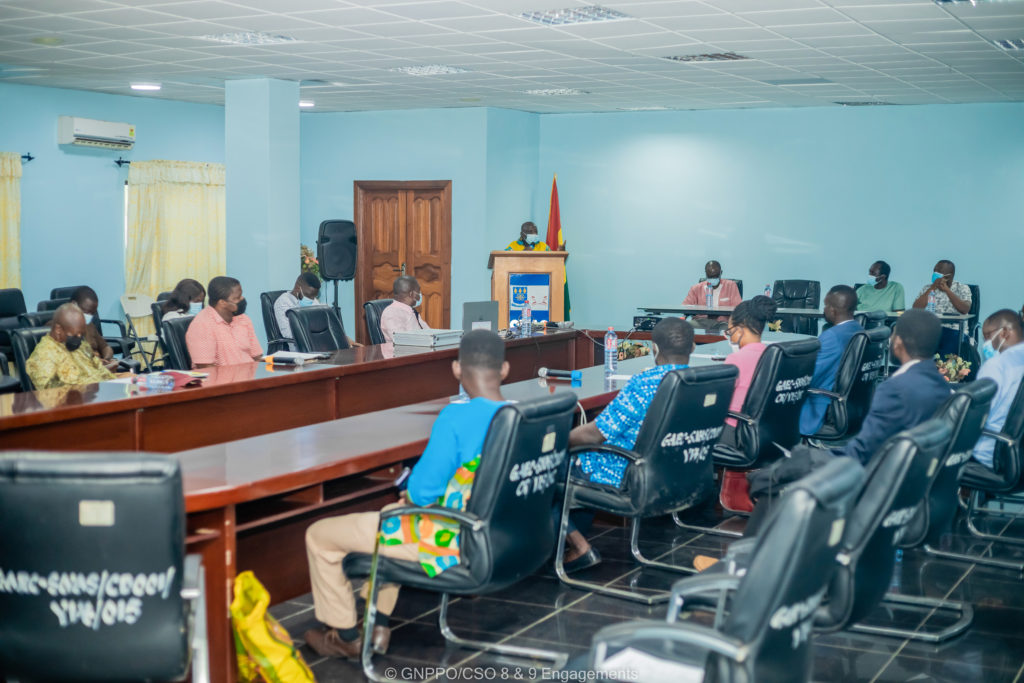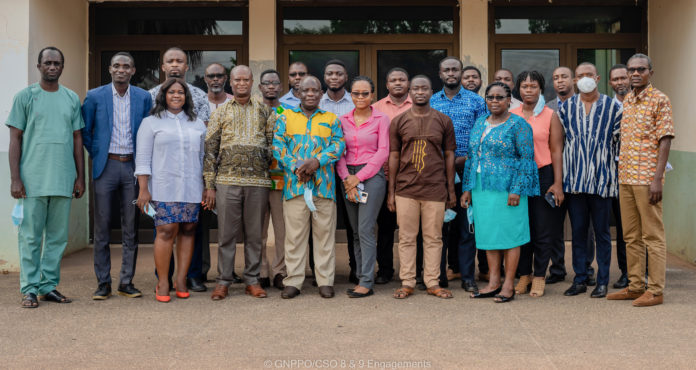The Director-General of the Ghana Atomic Energy Commission (GAEC), Prof. Benjamin Jabez Botwe Nyarko, has said nuclear applications hold the key to realising more than nine of the 17 Sustainable Development Goals (SDGs).
According to him, nuclear applications continue to contribute to meeting the developmental objectives of many countries in areas such as power production, human health, food production, water management, and environmental protection.
“As a nation, if we want to move forward, we must try as much as possible to harness the potential of nuclear energy in our developmental agenda,” he added.
Prof. Nyarko made this known when he addressed stakeholders at a one-day engagement session with some Civil Society Organisations (CSOs) on SDG eight and nine, organised by the Nuclear Power Institute of GAEC on behalf of Ghana’s Nuclear Power Programme Organisation (GNPPO) in Accra.

The Director-General emphasised that energy is the bedrock of every living organism and that the greatest source of energy is from the sun. “The sun produces energy through fusion and the fundamental energy God created is from nuclear reaction, so I don’t think anybody should be afraid of nuclear,” he stressed.
Prof. Nyarko, who is also the Vice-Chairperson for the GNPPO, explained that SDG 8 (Decent work and economic growth) and 9 (Industry, Innovation and Infrastructure) are interdependent and that without industrialisation there would be no economic development.
“Industries drive the economy of every nation and for industries to thrive, energy will be required, and not just any form of energy but a dense, stable, clean and affordable energy and that is where nuclear energy comes in”, he explained.
“We are not saying other energy sources should be abandoned. What we are saying is that it should be an addition to Ghana’s energy mix just us South Korea and other developed countries have done and are enjoying the benefits,” he added.
On his part, the Director of Nuclear Power Ghana, Dr Stephen Yamoah, said Ghana cannot achieve its SDGs without nuclear energy, adding: “We are not just approaching this nuclear project and programme as an add-on to the country’s generation capacity but to ensure that it propels industrial growth and improve on technology and services.”

He cited South Korea’s industrial transformation and said they saw nuclear not just as an energy source to be added to their generation capacity but as an industry to propel their economy. “Today they are not just an economic giant, they are selling nuclear technologies and nuclear power plants to other countries. Nuclear energy is a very interesting technology that as a country we must take very seriously to help transform our country,” he added.
Speaking for the CSO platforms that work collaboratively to achieve the SDGs in Ghana, Kwadwo Owusu expressed his gratitude for the involvement of CSOs in such an important discussion that focuses on Ghana’s Nuclear Power Programme.
“If we make good strides in the generation of energy, I think almost all the SDGs stand to benefit,” he added.
M. Owusu noted that the engagement was a good platform to arm CSOs with information and expert opinion. “I think I speak the mind of Civil Society when I say that, armed with the right information, you will find good partners in us,” he said.
Participants appreciated the progress made so far in developing Ghana’s nuclear power programme and indicated a clear understanding of their roles, as agents of development in the delivery of Ghana’s nuclear power programme.

